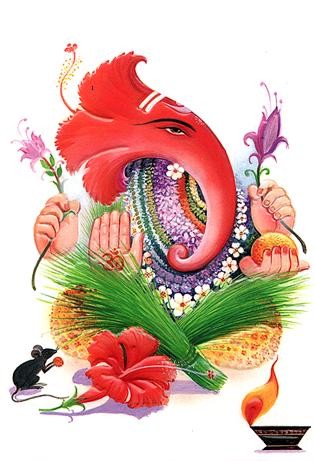Book Review: The Man on the Road
True to the original
W. CHANDRAKANTH
| Despite pitfalls, the book retains the authenticity of the language. |

That Man On The Road: Contemporary Telugu Short Stories; edited by Ranga Rao, Penguin, Rs. 250.
TRANSLATIONS from other languages into English could convey the original style by adopting the equivalents of the syntax in English or even be free adaptations that retain the original spirit dispensing with the original style and idiom.
There is the third kind as J.A. Cuddon says: "A more or less literally exact rendering of the original meaning at the expense of the syntax, grammer, colloquialism and idiom of the language into which it is put" on the lines of Lang, Leaf and Myerss' famous translation of Iliad. That Man On The Road, an anthology of contemporary Telugu short fiction edited by Ranga Rao and published by Penguin Books, falls under the this category.
Translation is difficult or even perilous if one does not understand the native idiom and syntax. The 18 stories chosen for this edition are, as Ranga Rao explains, "a one man choice". Amarendra Dasari, Jayashree Mohan, C.L.L. Jayaprada, D. Kesava Rao and Vadrewu Vijayalakshmi (along with Ranga Rao) have done five of these stories. The original stories were penned by some of the most renowned and prolific storywriters whose contribution to Telugu story was remarkable.
Various influences
Telugu literature itself has come under the influence of a variety of literatures. As reputed scholar, late Kothapalli Veerabhadra Rao, observed "if a literature adapts or adopts what is new and wholesome in other literatures when they are in contact, it is not a matter for shame." These influences should also be kept in mind in translating Telugu works. Stories selected for the compilation here range in thematic content highlighting human failures, systemic disorders, issues like feminism and exploitation.
The hallmark of Telugu story, contemporariness, becomes evident to the non-Telugu readers in these stories. The human failures and their idiosyncrasies retain the poignancy that marks the original. As the "Afterword" in the end points out bilingualism and bi-culturalism make translation creative and challenging. A translator has a tough job on hand — that of weighing how much of an exposure that the reader should get to the ethos of the people being written about.
Pitfalls, as Jayaprada says referring to "Cattle Thief", abound in sustaining the authenticity of the original in translation. "Englishisation of Telugu" is not an easy job. The attempt here strives to be nearer to perfection. Caution: Being literally literal could look awkward to a non-native at times. But, the book is self-explanatory. Footnotes and Afterword are good enough to cover the missing ends.
There is the third kind as J.A. Cuddon says: "A more or less literally exact rendering of the original meaning at the expense of the syntax, grammer, colloquialism and idiom of the language into which it is put" on the lines of Lang, Leaf and Myerss' famous translation of Iliad. That Man On The Road, an anthology of contemporary Telugu short fiction edited by Ranga Rao and published by Penguin Books, falls under the this category.
Translation is difficult or even perilous if one does not understand the native idiom and syntax. The 18 stories chosen for this edition are, as Ranga Rao explains, "a one man choice". Amarendra Dasari, Jayashree Mohan, C.L.L. Jayaprada, D. Kesava Rao and Vadrewu Vijayalakshmi (along with Ranga Rao) have done five of these stories. The original stories were penned by some of the most renowned and prolific storywriters whose contribution to Telugu story was remarkable.
Various influences
Telugu literature itself has come under the influence of a variety of literatures. As reputed scholar, late Kothapalli Veerabhadra Rao, observed "if a literature adapts or adopts what is new and wholesome in other literatures when they are in contact, it is not a matter for shame." These influences should also be kept in mind in translating Telugu works. Stories selected for the compilation here range in thematic content highlighting human failures, systemic disorders, issues like feminism and exploitation.
Boya Jangayya's దొంగలు (Dongalu) ("Thieves") is a telling commentary on the travails of Beerappa. His futile attempts at securing a loan to buy sheep are rendered as crisply as in the original by Ranga Rao. "That Man On The Road" is one of Madhurantakam Rajaram's gems that exposes the false concern of the rich for the poor. Ensconced in comforts, Narasappa garu grapples with the problems faced by Ranganna but his intent is never translated into action. Alas, he does not step out of the car to greet his "childhood hero". The beautiful narrative skill is not lost in the translation. "Mango Tree" makes it a compelling reading because of its intense narration.
The hallmark of Telugu story, contemporariness, becomes evident to the non-Telugu readers in these stories. The human failures and their idiosyncrasies retain the poignancy that marks the original. As the "Afterword" in the end points out bilingualism and bi-culturalism make translation creative and challenging. A translator has a tough job on hand — that of weighing how much of an exposure that the reader should get to the ethos of the people being written about.
Pitfalls, as Jayaprada says referring to "Cattle Thief", abound in sustaining the authenticity of the original in translation. "Englishisation of Telugu" is not an easy job. The attempt here strives to be nearer to perfection. Caution: Being literally literal could look awkward to a non-native at times. But, the book is self-explanatory. Footnotes and Afterword are good enough to cover the missing ends.
Courtesy: The Hindu



0 Comments:
Post a Comment
<< Home